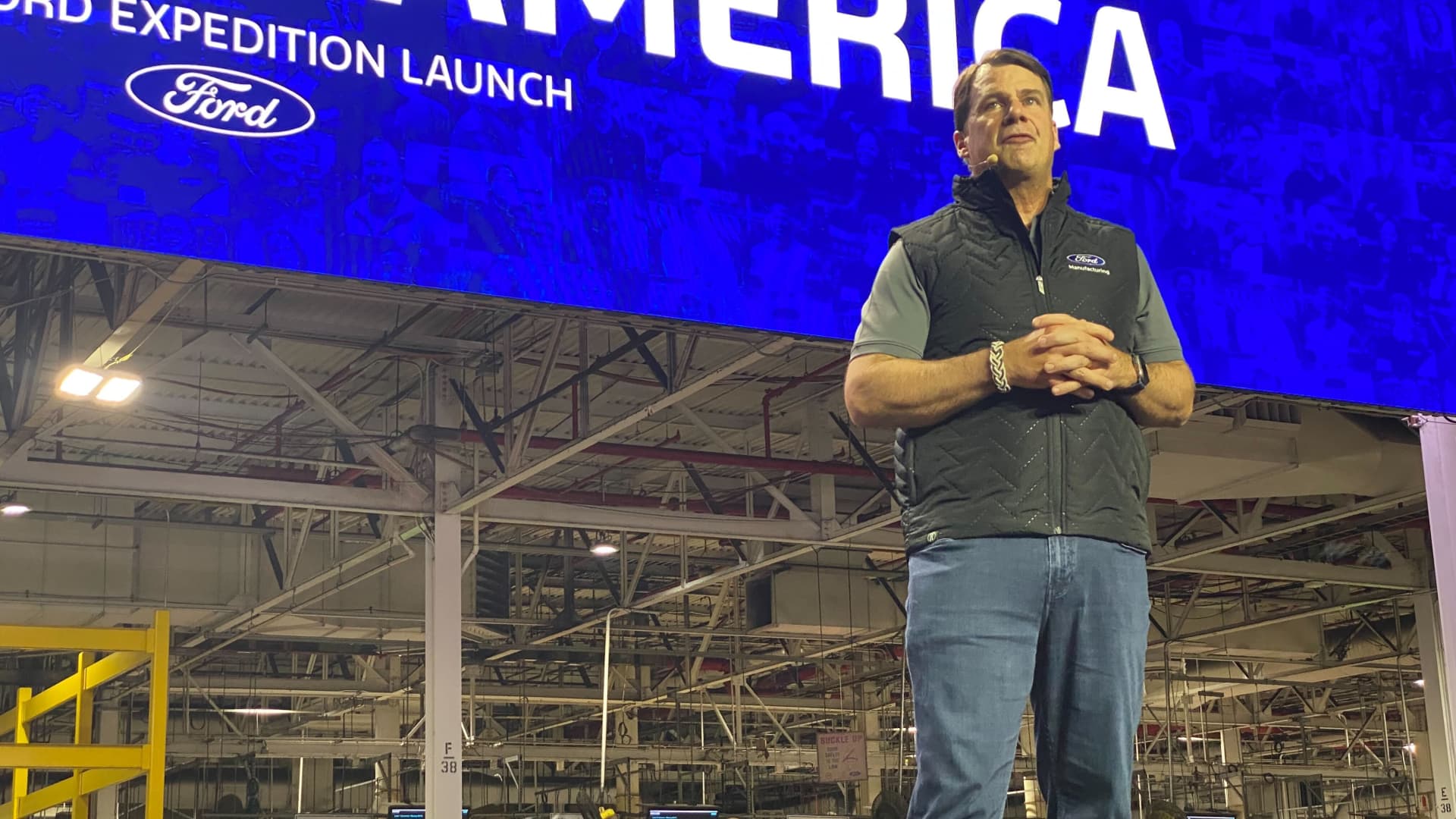Ford CEO Jim Farley on Trump’s Tariff Changes
The Crossroads of Trade Policy
In the dynamic world of international trade, the automotive industry stands as a pivotal player, often at the mercy of policy shifts. President Donald Trump’s executive orders on automotive tariffs have stirred a blend of relief and apprehension among industry stalwarts. Ford CEO Jim Farley has been forthright about the ramifications of these tariff adjustments, recognizing the benefits while stressing the need for further tweaks. This report explores Farley’s viewpoint on Trump’s tariff policies, scrutinizing the intricacies of the current scenario and the prospective future repercussions.
A Tale of Two Emotions: Relief and Concern
The Silver Lining: Immediate Tariff Relief
President Trump’s decision to ease certain automotive tariffs has been a breath of fresh air for Ford CEO Jim Farley. The executive order, which exempts specific car and parts tariffs, is seen as a positive move. Farley has labeled the tariff relief as “reasonable” and “the right thing to do,” acknowledging its role in easing the burden on automakers, suppliers, and consumers.
The immediate perks of tariff relief are evident. By reducing some of the hefty duties, automakers can better navigate their supply chains and production expenses. This, in turn, can result in more stable pricing for consumers, who have been anticipating potential price surges due to increased tariffs. Farley’s gratitude for the decision is palpable in his statement that Ford welcomes and appreciates these measures, as they help to mitigate some of the financial strains faced by the industry.
The Storm Clouds: Lingering Challenges
Despite the silver lining, Farley has swiftly pointed out that more changes are necessary. The 25% tariff on imported cars remains, and a new 25% tariff on auto parts is slated to take effect. These lingering tariffs present substantial hurdles for the automotive industry, as they continue to add cost and intricacy to the supply chain.
Farley has stressed that the current tariff structure brings “a lot of cost and a lot of chaos” to the auto industry. The ambiguity surrounding tariff policies has made it challenging for companies to plan for the future, leading to potential production disruptions and increased financial stress. Farley’s concerns are backed by industry experts, who caution that the tariffs could result in significant profit declines and even job losses if not addressed promptly.
The Ripple Effect: Broader Economic Implications
The Specter of Long-Term Chaos
Farley’s warnings about the potential long-term impacts of Trump’s tariff policies are disconcerting. He has depicted the situation as bringing “a lot of chaos” to the industry, a sentiment echoed by many in the automotive sector. The uncertainty surrounding tariff policies has fostered a climate of instability, making it difficult for companies to make long-term plans and investments.
The specter of long-term chaos is not confined to the automotive industry. Tariffs have far-reaching effects throughout the economy, influencing everything from consumer prices to employment rates. Farley’s concerns about the tariffs’ impact on the broader economy are legitimate, as they underscore the interconnected nature of global trade and the potential for widespread disruption.
The Path Forward: A Comprehensive Approach
Farley’s advocacy for further changes to the tariff structure highlights the need for a more holistic approach to trade policy. While the recent tariff relief is a step forward, it is evident that more must be done to tackle the underlying issues. A comprehensive approach would involve not only easing tariffs but also addressing other trade barriers and promoting a more stable and predictable trading environment.
Such an approach would benefit not only the automotive industry but the broader economy as well. By reducing uncertainty and fostering a more stable trading environment, companies would be better equipped to plan for the future and make the investments needed to drive growth and innovation. This, in turn, would lead to increased economic activity and job creation, benefiting workers and consumers alike.
The Road Ahead: A Call for Continued Dialogue and Action
In the realm of international trade, the automotive industry finds itself at a critical juncture. Ford CEO Jim Farley’s insights on Trump’s tariff changes provide a nuanced perspective on the current landscape. While the recent tariff relief is a welcome development, it is clear that more needs to be done to address the lingering challenges and potential long-term impacts. Farley’s calls for further changes underscore the need for a comprehensive approach to trade policy, one that fosters stability and predictability in the global trading environment.
As the automotive industry continues to steer through the complexities of international trade, it is crucial that policymakers listen to the concerns of industry leaders like Farley. By engaging in continued dialogue and taking decisive action, we can strive for a more stable and prosperous future for the automotive industry and the broader economy. The time for action is now, and the stakes are high. Let us grasp this opportunity to build a stronger, more resilient trading environment for all. The road ahead is uncertain, but with concerted effort and strategic planning, we can navigate the challenges and emerge stronger and more united.








